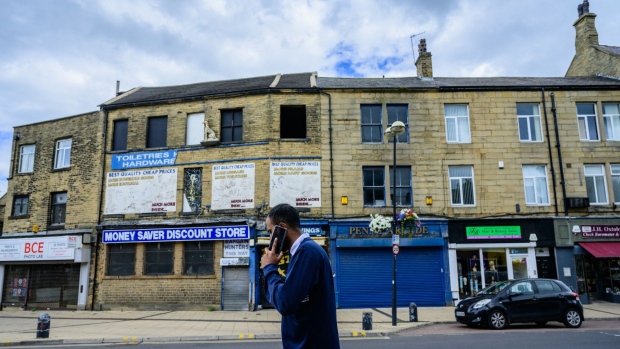Jul 22, 2022
BofA Sees UK Recession in 2023 On Higher Inflation and Rates
, Bloomberg News

(Bloomberg) -- Britain will fall into recession next year as higher inflation, aggressive interest-rate rises and weaker consumer demand hit growth, Bank of America’s UK economist Rob Wood predicts.
For 2023 as a whole, Wood sees output shrinking 0.4%, a downgrade from his earlier forecast for 0.2% growth. That is worse than the Bank of England’s May forecast for a contraction of 0.25%.
The main reason for his altered outlook is the recent surge in wholesale energy costs that are on track to hammer households even harder than previously thought when regulated household bills reset in October.
Tax cuts under a new Tory leader will drive prices higher and require an extra half-point rate rise. That would take the BOE benchmark up to 2.75%, from 1.25% today.
Wood assumes government borrowing will rise by £35 billion over the next two years which will push inflation higher.
His assumption suggests he accepts the polls are right and that Foreign Secretary Liz Truss will be the next UK prime minister or that former chancellor Rishi Sunak, her rival, will outline a similar magnitude of tax cuts.
In a note to clients, Wood said inflation will peak at 12.6%, above his earlier forecast of 11.3%. To bear down on inflation, the BOE will have to move faster and keep rates higher.
He expects a full percentage-point increase in interest rates over the next three BOE meetings to 2.25% by November, including an unprecedented half-point rise next month.
Two further quarter-point rises will be needed next year to offset the new government’s fiscal loosening.
“Surging energy prices, global supply chain disruptions, Brexit and long-term sickness cutting the UK workforce act like a tax on the UK economy, cutting incomes and spending,” Wood said. Those shocks are intensifying, he added.
Rates will stay high for longer than markets expect, he said. “We assume no rate cuts until late 2024 compared to mid-2023 in market pricing.”
©2022 Bloomberg L.P.


